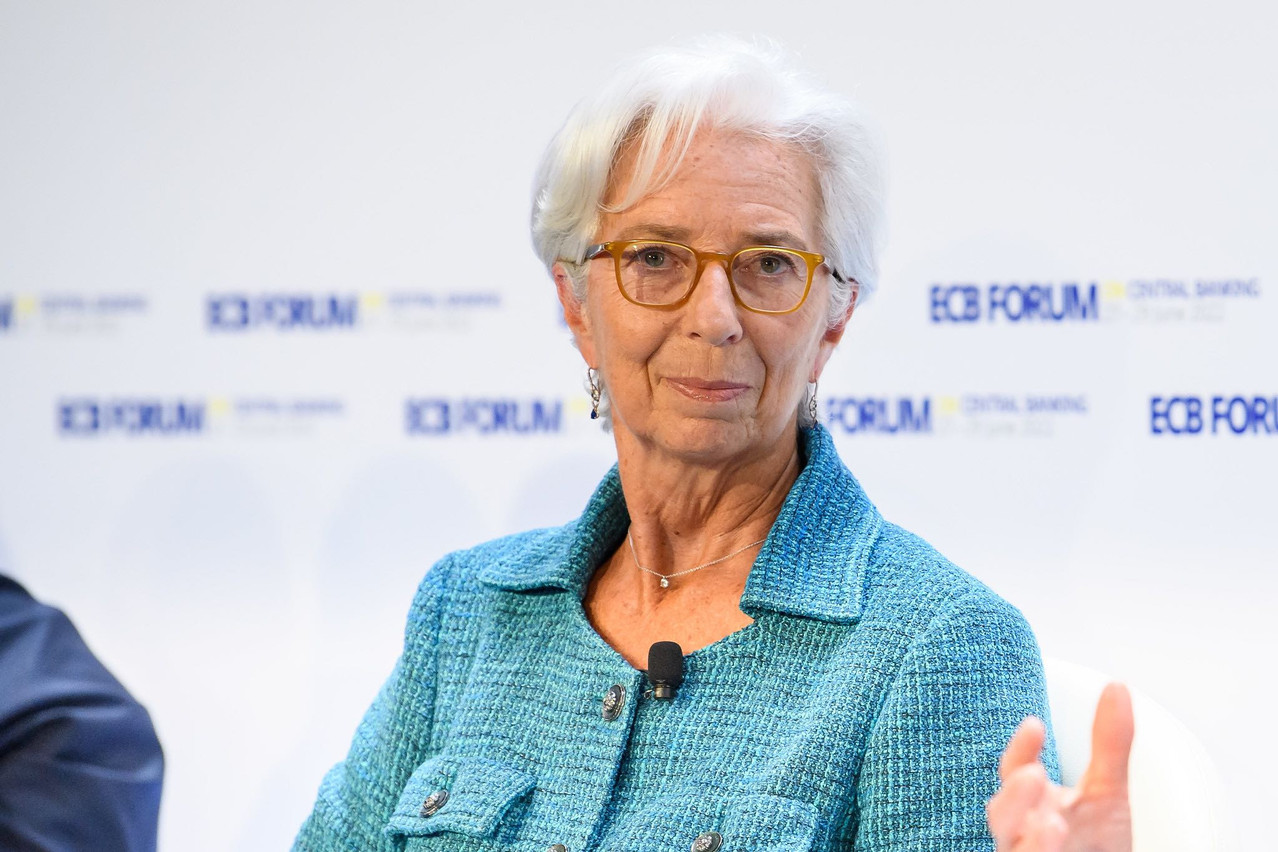The European Central Bank’s three main interest rates have each been hiked by 0.75%, the ECB said on Thursday. This brings the main refinancing operations rate to 1.25%, the marginal lending facility to 1.5% and the deposit facility to 1% starting on 14 September. It was the largest rate rise since the start of monetary union.
The decision was taken “unanimously”, Christine Lagarde, president of the ECB, said during a press conference.
The bank aims to return inflation, which reached 9.1% in August, back to its long-time goal of 2%.
Inflation forecast up, growth forecast down
The ECB revised its inflation projections upwards, to 8.1% in 2022, 5.5% in 2023 and 2.3% in 2024.
At the same time, it revised its economic growth projections downwards, to 3.1% in 2022, 0.9% in 2023 and 1.9% in 2024.
The energy markets will probably determine if the euro zone enters recession or not.
Reinvestments continue
The central bank’s asset purchase programme and pandemic emergency purchase programme, which were both intended to be phased out gradually, will remain active for a bit longer. Repayments of principal maturing securities will be reinvested in full and in the most flexible manner possible, the ECB said.
“The principal payments from maturing securities purchased under the APP for an extended period of time past the date when it started raising the key ECB interest rates and, in any case, for as long as necessary to maintain ample liquidity conditions and an appropriate monetary policy stance,” the bank explained in a statement.
The PEPP will continue “until at least the end of 2024,” the ECB said. “In any case, the future roll-off of the PEPP portfolio will be managed to avoid interference with the appropriate monetary policy stance.”
The transmission protection instrument, created in July to avoid fragmentation in the euro zone, was, the ECB stated, “available”. It did not provide many details. The TPI could be tested following the Italian general election on 15 September, which could tempt speculators to bet against Italian bonds.
The ECB rate hike could allow the euro to strengthen against the dollar (the euro recently fell below $1 for the first time in years), although that is not part of the bank’s mission.
A version of this article was originally written by Marc Fassone and published in French on ; this version has been translated and edited by
